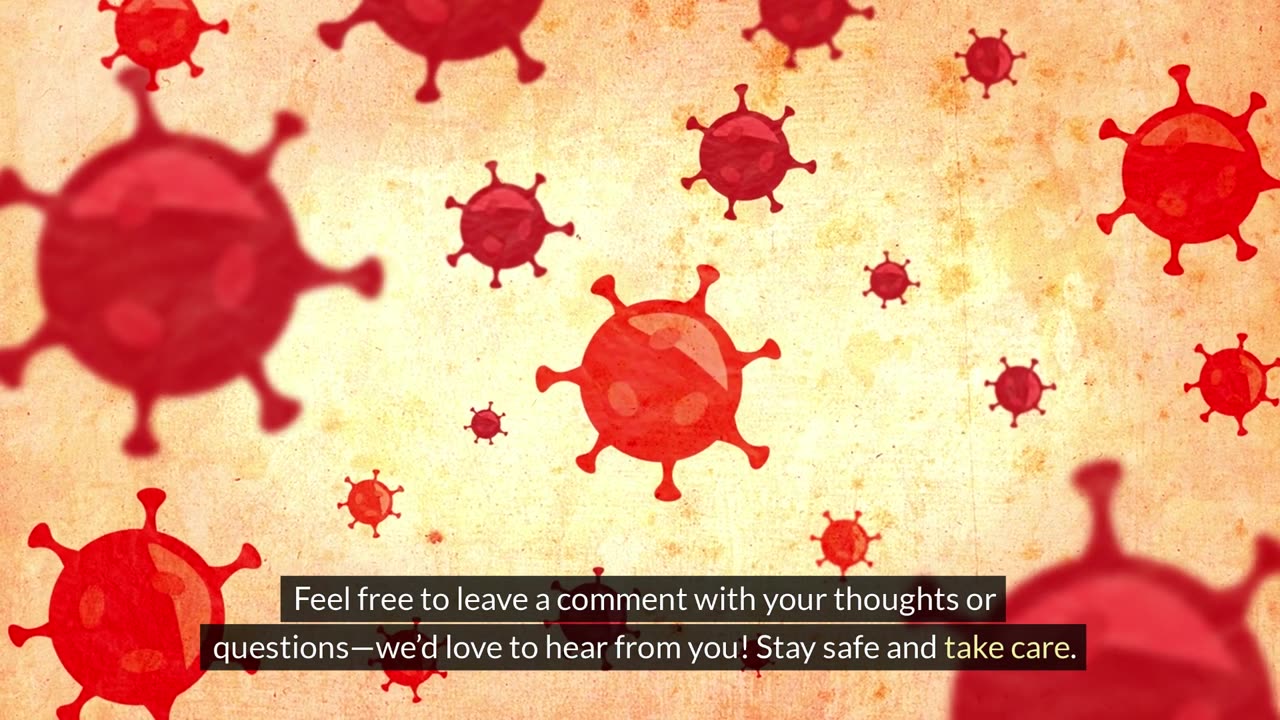Premium Only Content

‘FLiRT’ COVID Variants Could Be Driving an Uptick in Cases: Here’s How to Avoid Them**
As the world settles into the summer months, COVID-19 cases are starting to show signs of a subtle rise. Despite the significant decline in infections since the winter, experts warn that new variants, dubbed 'FLiRT,' could trigger a resurgence. As you plan your summer activities, it's crucial to stay informed about these developments and take measures to protect yourself and your loved ones. Let's delve into the latest on the FLiRT variants, the potential risks, and how you can stay safe this season.
** 1: The Rise of the FLiRT Variants**
COVID-19 has a notorious reputation for evolving, and the latest chapter in its saga is the emergence of the FLiRT variants. Named after the amino acids involved in their spike protein mutations—phenylalanine (F), leucine (L), arginine (R), and threonine (T)—these variants are quickly becoming more prevalent. In March, FLiRT variants accounted for less than 5% of infections. By May 25, they represented over 50%, with KP.2 alone causing 28.5% of cases. These mutations may help the virus evade the immune system more effectively, potentially explaining their rapid spread. The swift rise of these variants is a reminder of COVID-19’s unpredictable nature and its ability to adapt.
** 2: Why Summer Increases are Concerning**
Historically, COVID-19 peaks during the winter, but summer spikes aren't unheard of. Several factors contribute to this seasonal uptick: increased travel, indoor gatherings due to heat waves, and the waning of immunity from vaccines. Public health experts, like Peter Chin-Hong from UCSF, have noted that while national infection rates are currently low, they are "not zero." The combination of new variants, relaxed social distancing, and decreased vigilance could set the stage for a significant summer surge. The lesson from previous years is clear: complacency can lead to a rise in cases, hospitalizations, and even deaths.
** 3: The Impact of Waning Immunity**
Immunity from COVID-19 vaccines and previous infections does not last indefinitely. The current XBB.1.5 vaccine, for example, starts with 52% effectiveness against infection, but this drops to 20% after 20 weeks. Similarly, protection against hospitalization decreases from 67% to 57% over the same period. As immunity wanes, the risk of infection increases, particularly with the emergence of new variants like FLiRT that might not be well-covered by existing vaccines. This underscores the importance of staying up-to-date with vaccinations and considering booster shots to maintain a robust defense against the virus.
** 4: Current and Future Vaccination Strategies**
With the rise of new variants, vaccination strategies must adapt. The FDA's advisory committee is set to decide on a new vaccine formula for the fall, potentially targeting the latest strains. Meanwhile, the availability of vaccines remains crucial. Programs like the federally supported Bridge Access Program provide free vaccines to the uninsured, but this initiative is ending in August. Public health officials emphasize the need for widespread vaccination, particularly for those who have not received a booster in the past year. Alongside vaccines, treatments like Paxlovid offer additional protection, especially for high-risk individuals.
5: Practical Steps to Stay Safe This Summer**
As we navigate the summer months, there are several practical steps you can take to protect yourself and others from COVID-19:
- **Stay Informed:** Keep up with the latest news on COVID-19 variants and vaccination recommendations.
- **Get Vaccinated:** Ensure you are up-to-date with your COVID-19 vaccinations, including boosters if eligible.
- **Practice Good Hygiene:** Continue regular hand washing and use hand sanitizer when soap and water are not available.
- **Wear Masks:** In crowded or indoor settings, wearing a mask can reduce the risk of transmission.
- **Monitor Health:** Be vigilant about any symptoms of COVID-19 and get tested if you feel unwell.
- **Use Rapid Tests:** Pack COVID-19 rapid tests for summer travel and use them if you suspect exposure.
The rise of the FLiRT variants and the potential for a summer surge in COVID-19 cases serve as a timely reminder that the pandemic is not over. By staying informed, getting vaccinated, and practicing good health habits, we can protect ourselves and our communities. Stay vigilant, and don't let your guard down. If you found this article helpful, please like, share, and subscribe to our channel for more updates and insights on health and safety. Leave a comment below with your thoughts and questions—we’d love to hear from you!
Thank you for reading, and stay safe this summer!
-
 1:27:30
1:27:30
AlaskanBallistics
7 hours ago $1.52 earnedI Love This Gun PodCast #7
53K3 -
 1:04:49
1:04:49
Glenn Greenwald
11 hours agoHow is Trump's Fixation on Taking Over Gaza "America First"?; Netanyahu Never Intended to Carry Through on Ceasefire Deal | SYSTEM UPDATE #405
106K124 -
 1:00:06
1:00:06
Rumble Rundown
19 hours agoThe Rumble Rundown: Rumble Studio and Creator Program
93K37 -
 14:20
14:20
Timcast
12 hours agoTim Pool HAS JOINED Rumble Premium, HUGE ANNOUNCEMENT, Timcast Exclusive Content Is MOVING
162K295 -
 2:14:28
2:14:28
Slightly Offensive
10 hours ago $10.57 earnedELITES Go DEFCON3 on Kanye West, Cancel Culture 2.0 BEGINS! | Nightly Offensive
72.1K24 -
 58:56
58:56
The StoneZONE with Roger Stone
9 hours agoWhy Obama and the Democrats Fear the Blagojevich Pardon | The StoneZONE w/ Roger Stone
58K11 -
 1:07:37
1:07:37
Josh Pate's College Football Show
9 hours ago $1.36 earnedSEC Program Rankings | Next Elite Program | CFB Ratings vs NFL Ratings | 2025 Breakout QBs
37.9K1 -
 53:28
53:28
Candace Show Podcast
16 hours agoBecoming Brigitte: Jean-Michel Trogneux | Ep 4
169K98 -
 58:47
58:47
Edge of Wonder
13 hours agoRigging the Game: Super Bowl Controversy & Fake Alien Invasion Commercial
31K7 -
 11:37
11:37
Tundra Tactical
11 hours ago $1.57 earnedHeroes in Texas Stop DEADLY School Shooting!
23.9K6